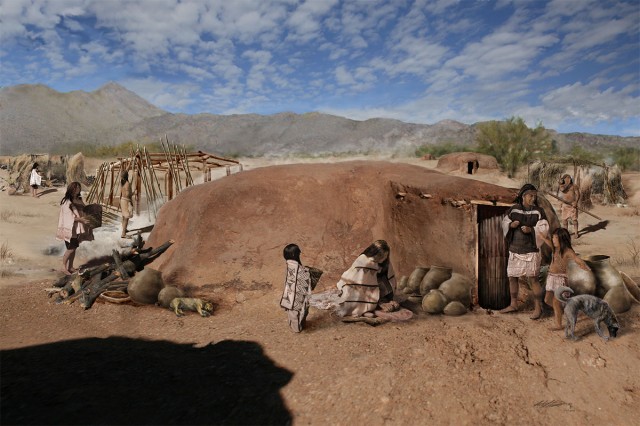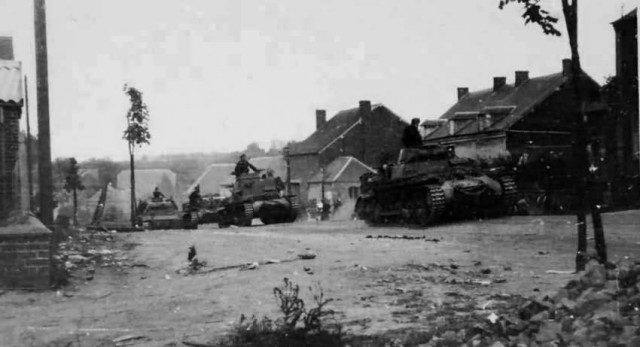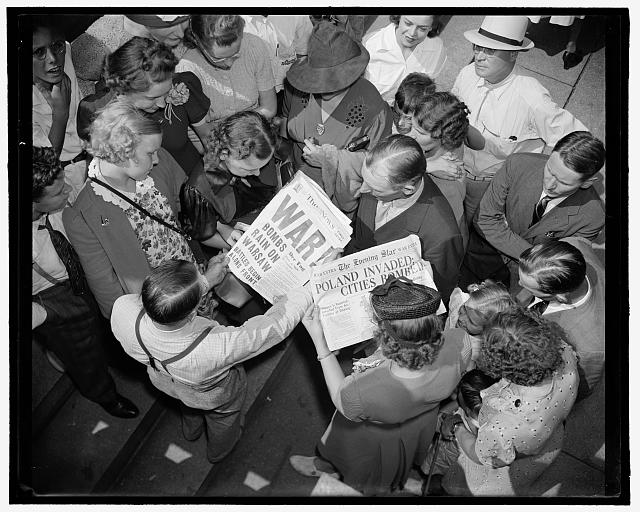- Home
- >
- Preservation Archaeology Blog
- >
- Enough with that word!
(October 15, 2014)—I’m on a mission.
My colleagues at Archaeology Southwest have heard this one before. They seem to appreciate my stance, so I’ve decided to continue evangelizing through this post.
There is a word—so common in professional and academic archaeological writing—that I systematically eradicate from every piece of archaeological writing for the public that crosses my desk. (I’m not sure that anyone who hasn’t heard me make my case even notices when I’ve replaced the word, which underscores the point I’ll make here.)
That word is “occupy.” And its nominal form, “occupation.”
Sure, lots of jargon innocently makes its way into well-intentioned and much-needed archaeological interpretation for the public. And it’s my job to help archaeologists identify and explain those. But this one comes up a lot, even in public presentations, and replacing it should be painless—it just requires a simple shift in thinking. Consider:
This site was occupied between A.D. 200 and 850.
This pottery type dates to the later fourteenth-century occupation at the site.
That stirs the imagination, doesn’t it? For me, “occupy” and “occupation” (other than in the sense of a job) always conjure flickering silver newsreel of tanks rumbling into Poland in 1939. Nowadays, I also picture the situation in Ukraine and scores of folks trying to hold Wall Street accountable.
|
|
|
Of course I know that the word means “reside” as well as “take up space” and “take control or possession [of a place].” But descriptively, it falls flat when writing about people in any sense but the latter.
How about:
People lived in this village for six centuries (A.D. 200–850).
Residents used this kind of pottery for fifty years, between about 1350 and 1400.
There’s a straightforward way to breathe life into the places of the past—put the people in them! Whether professional archaeologist or archaeological enthusiast, what we’re really interested in is the people—how they lived, survived, thrived.
People rested, camped, dwelt, and resided in places. They inhabited places.
While there, they burned food, skinned knees, braided hair, hugged kids, shouted at dogs, laughed with delight, chipped teeth, wept with friends.
Archaeologists rarely invoke such realistic moments in formal, scientific writing, and for good reasons. Still, I believe that even in scholarly writing, more simply stating that people did things (rather than “things were done”) would be a welcome step toward humanizing our collective considerations of the past. “People lived in this village for six centuries” and “Residents used this kind of pottery for fifty years” should be perfectly acceptable statements in scholarly contexts.

Archaeologists have embraced this kind of paradigm shift in diction before. In talking about this post with my colleagues Matt and Doug, they remarked on the concerted shift away from the words “abandoned” and “abandonment” (the opposite of “occupying”) in Southwestern archaeology since the 1990s, or perhaps even earlier.
Notably, anthropologists T. J. Ferguson and Chip Colwell shared Native people’s views of “abandonment” in their seminal book, History Is in the Land: Multivocal Tribal Traditions in Arizona’s San Pedro Valley (University of Arizona Press, 2006). Consider:
Although O’odham ancestors left their homes along the San Pedro Valley in the 1760s, they did not completely sever their attachments to the country in the east. “It is clear,” as Bernard Fontana (1981:68) once remarked, that “‘abandoned’ is a relative concept in the world of Papago [O’odham] culture.” (Page 83)
Octavius Seowtewa said he knows that archaeologists consider these places to have been “abandoned,” but this is an erroneous characterization. For the Zuni the archaeological sites in the San Pedro Valley are alive with the spirit of their ancestors, and they feel a continuing attachment to these places. These ancestral sites are venerated in prayers and songs, and they remain a vital part of Zuni culture and history. (Pages 186–187)
I believe that similar reasoning applies to “occupation.” When you think about your ancestors and where they lived, worked, and loved, are they “occupying” anything? If they are, I bet you are envisioning the invasive sense of the word (Romans! Huns! Vikings! Englishmen!)—not people rising with the birdsong, rolling their shoulders after hard labor, murmuring under the stars, settling down for a night’s rest. Doing a lot more than taking up space.
Ah, but that is what you’re seeing in your mind’s eye?
I thought so.
9 thoughts on “Enough with that word!”
Comments are closed.


An excellent idea, Kate! There are so many ways that our unconscious jargon creates distance between us, the people we study, and their descendants…
Thanks, James! I’m glad you agree.
Fabulous point, and I think you have defined a necessary role–anthropological communicator. The intersection of the study of a (thing) and the description of the analysis that results from the study. Brava!!
I agree,those words or terms serve only to create a greater distance between us and our ancestors.It’s perhaps an unconscious action but one that nevertheless serves to”erase”the humans….the very essence of the history in its various aspects,cultural identity is and always should be of the humanity.If we take away that then there is no reason for Archeology the discipline becomes something else,”treasure hunt”is the most obvious and the most despicable of all that come to mind.
I am a civilian in this field, an lifelong enthusiast that is of archeology, not an archeologist by profession.
With all due respect, this seems like much ado about nothing.
“For me, ‘occupy’ and “occupation” (other than in the sense of a job) always conjure flickering silver newsreel of tanks rumbling into Poland in 1939. Nowadays, I also picture the situation in Ukraine and scores of folks trying to hold Wall Street accountable.”
Seriously? Seems rather hyperbolic. I have spent much of my adult life as an activist against oppression, discrimination etc., I think these days that people are looking for ways to get offended and get riled up about minutia when real issues go on without a word of protest.
It’s not that I’m offended by the word or excessively riled up over minutiae. It’s my job to write about the past and help others do so, so my post is about diction. I honestly and simply believe that there are better words to use, especially in writing for the public. And, in all seriousness, as a history buff, it does always bring images of invasion or Occupy Wall Street to my mind. I’m not saying archaeologists shouldn’t use it simply because it puts me and others in mind of historic invasions; I’m saying that it isn’t very descriptive of people’s actions. I advocate for verbs!
A late-comer to SW archaeology literature, at first I was annoyed that there was so little human activity in my reading, much like Kate. I realized eventually that was because archaeologists try only to write of what they know — they are not anthropologists. So the decision to “occupy” rather than to “live” was the safe serious choice. That said, I would be delighted if a somewhat more humanizing convention could be introduced to archaeological literature. Maybe even take a few leaps, a la Steve Lekson . . .